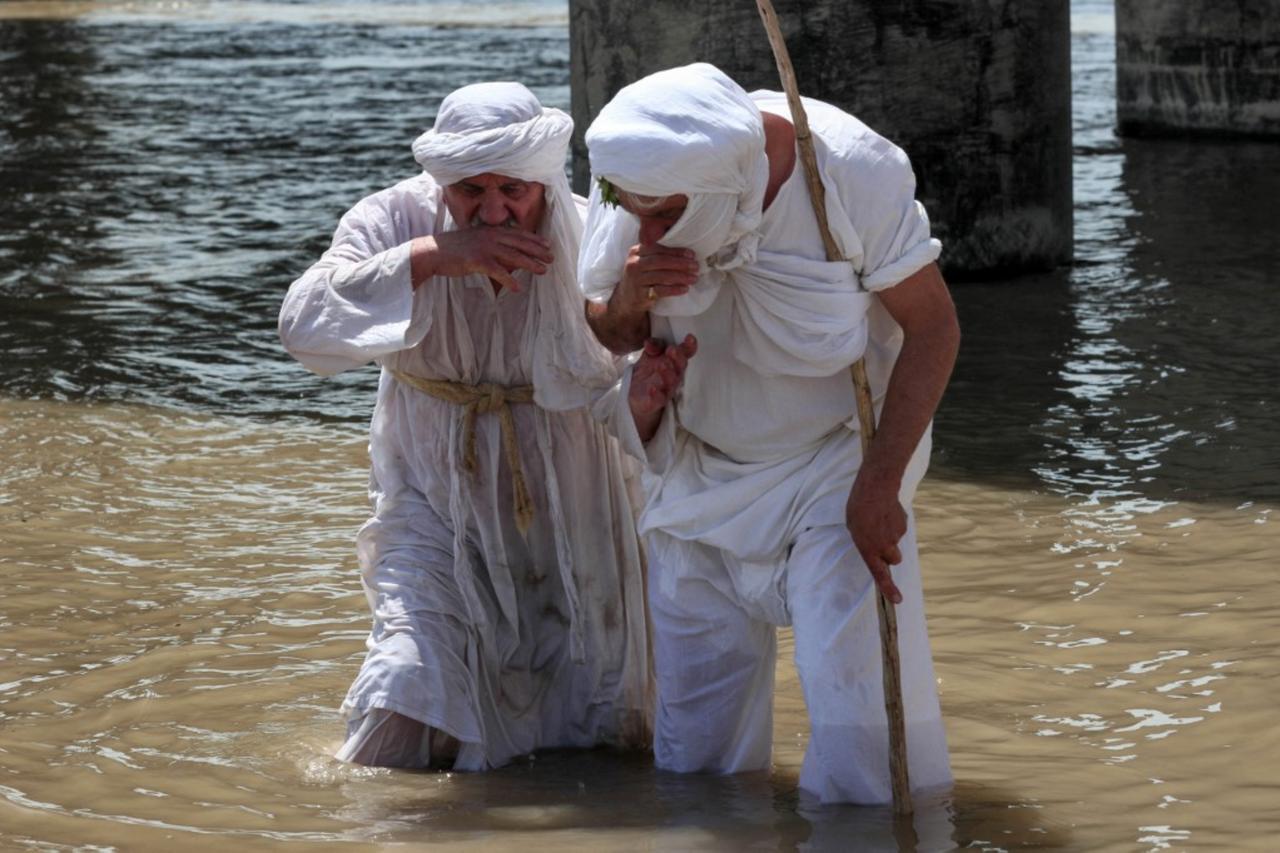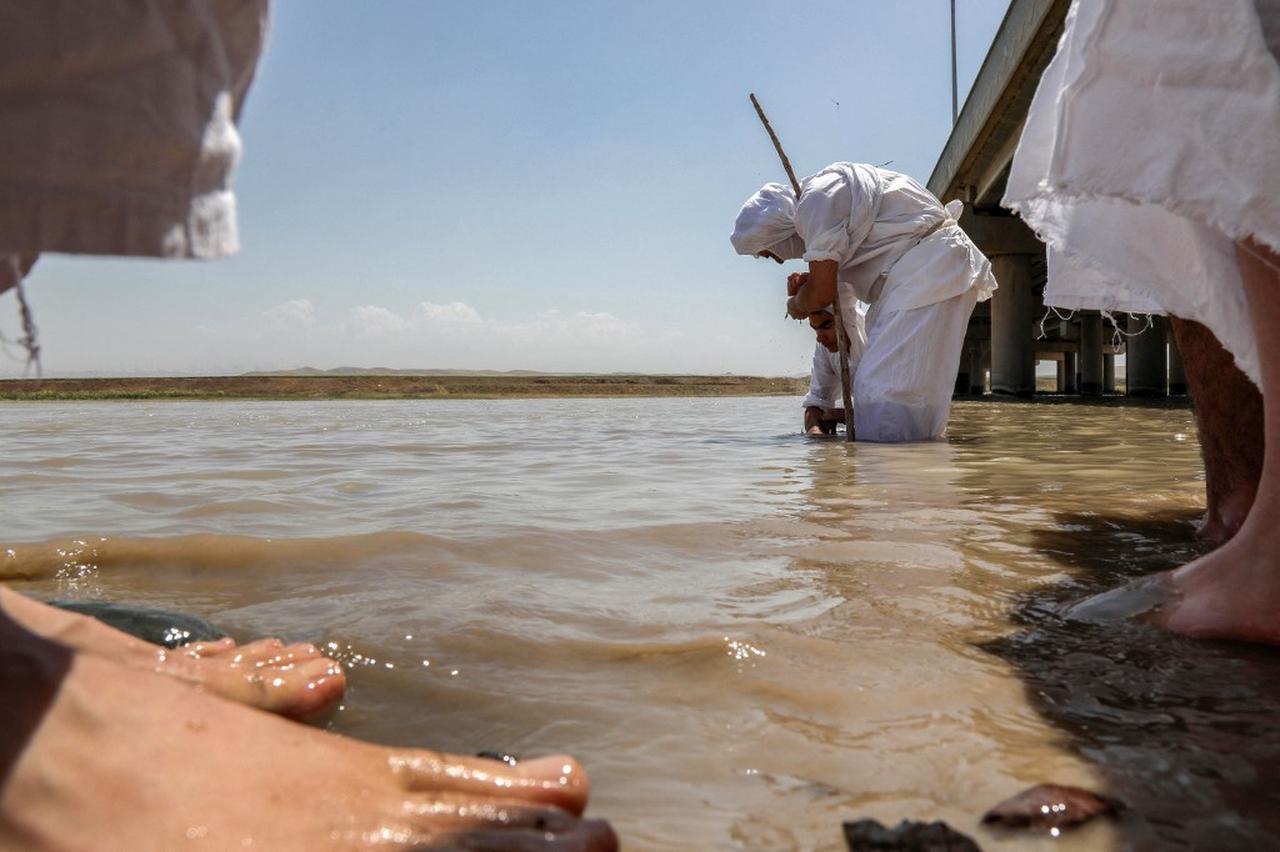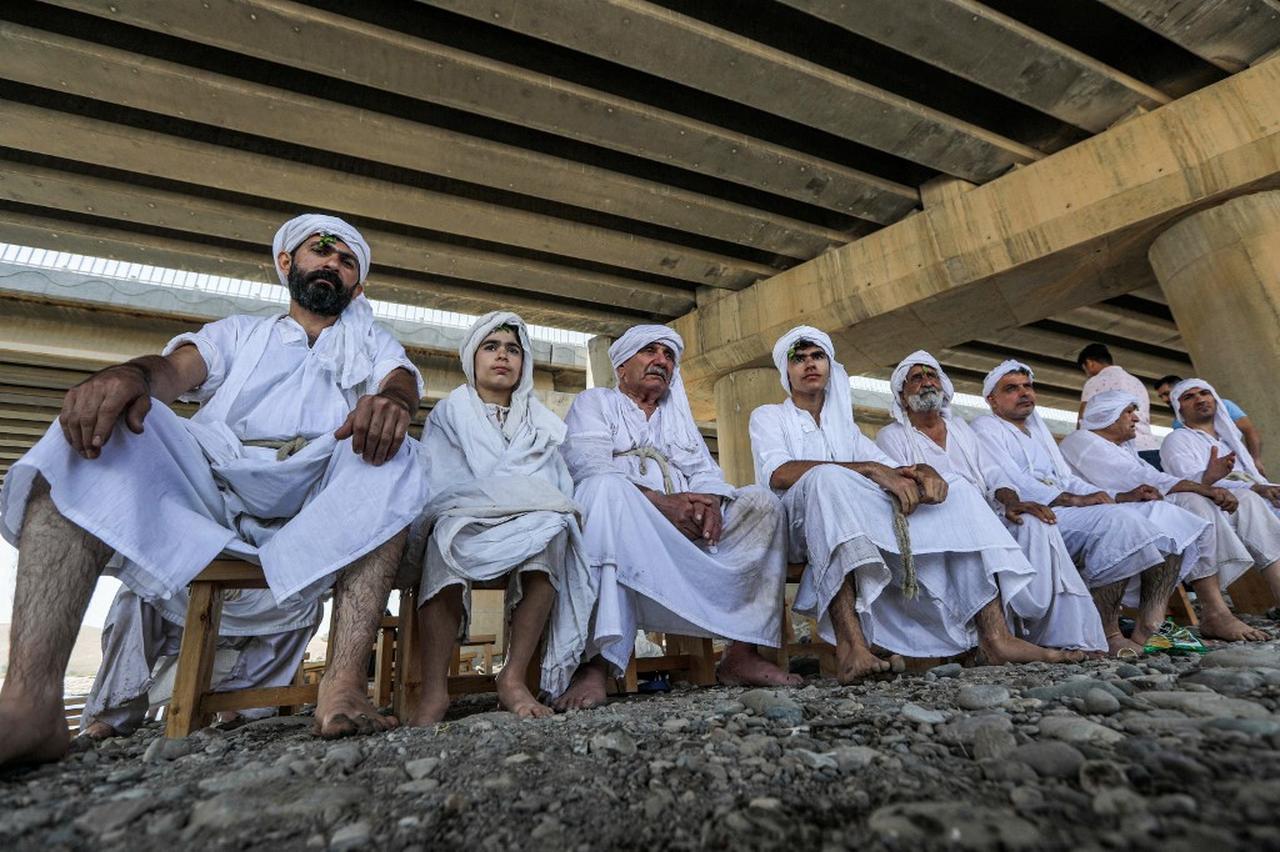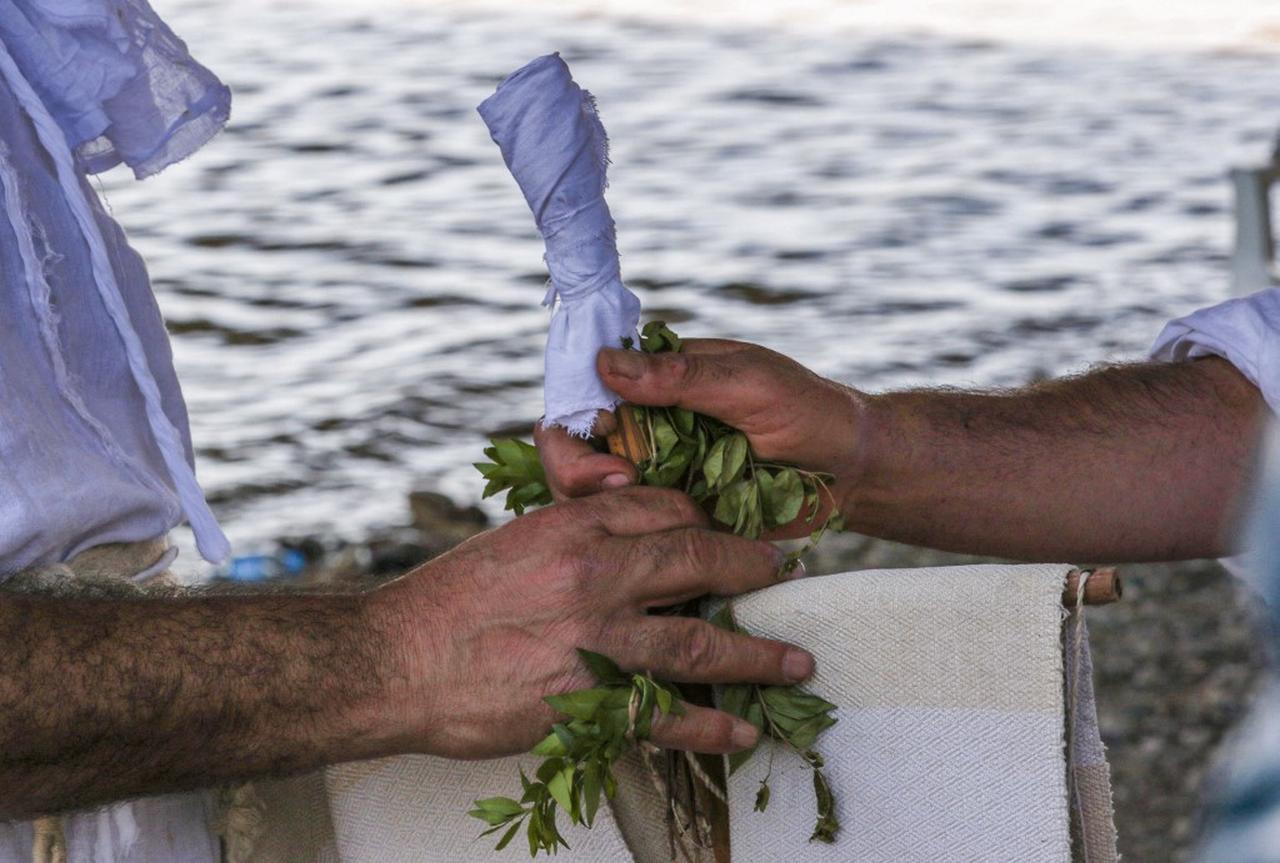
The ongoing water drought in Iraq is threatening the religious rituals of the Mandaean Sabians, which rely heavily on rivers for ritual baptism and purification practices, posing a risk to their spiritual heritage.
One of the oldest religious communities in Iraq, the Mandaeans have a significant presence in the southern provinces of Dhi Qar and Maysan.
However, the drying up of tributaries feeding the Tigris and Euphrates rivers has forced many members to migrate, as flowing water is considered essential to their way of life.
Many of their religious rites, including marriage ceremonies, depend on adequate water levels to be performed.
Many of their rituals are tied to it, particularly marriage ceremonies, which can only be held when water levels are sufficient.
Experts link the significant decline in Iraq’s Mandaean population—now estimated at fewer than 10,000, roughly half its size before 2003—to widespread emigration driven largely by these environmental challenges.

The Mandaean Sabians, who have lived in Mesopotamia for over two millennia, follow a monotheistic faith that reveres a line of prophets including Adam, Sheeth (referred to as Sheethil in their tradition), Noah and his son Shem, Abraham and John the Baptist (Yahya ibn Zakariya).
At the heart of their religion is the Ginza Rabba, or "The Great Treasure"—a 600-page sacred manuscript that contains the core teachings, rituals, and cosmology of the faith.
Today, there are growing concerns that this ancient community, once an integral part of Iraq’s cultural and religious fabric, may disappear entirely amid mounting environmental and social pressures.

The water drought in Iraq has affected not only religious rituals and daily activities of the Mandaean community but also wedding ceremonies, as flowing water is considered the essence of life for them.
According to media reports, members of the Mandaean Sabian community in Iraq have faced significant disruptions to their traditional wedding rituals due to changing environmental conditions along the country’s rivers.
In one reported case, rising water levels submerged a site used for religious ceremonies in the Al-Qadisiyyah region, while on another occasion, a heavy dust storm concealed the river, making it impossible to perform the vital baptism ritual known as Sabagha.
These disruptions have affected the sequence of Mandaean weddings, which typically involve legal registration followed by a two-day celebration. The religious ceremony, held on a Sunday, is preceded by a wedding party on Saturday. During the Sabagha, couples wear the Rasta—a simple white cotton garment that holds deep spiritual significance within their Aramaic-rooted tradition.

The Iraqi Ministry of Water Resources has issued a series of statements in an effort to address mounting pressure from a water crisis the country has not experienced in decades.
In its latest warning, the ministry cautioned that continued declines in water inflows—coupled with a lack of cooperation from upstream countries—will further aggravate the crisis and threaten Iraq’s water security.
Meanwhile, Turhan Al-Mufti, Adviser to the Prime Minister on Water Affairs, stated that this year ranks among the driest Iraq has seen since 1933. He emphasized that the drought is intensifying at an unprecedented rate, driven by years of declining rainfall due to climate change.
Al-Mufti also pointed to a significant drop in the water levels of the Tigris and Euphrates rivers, exacerbated by water management policies in Iran and Türkiye—particularly dam construction and the diversion of river courses—which he warned could trigger a humanitarian disaster.